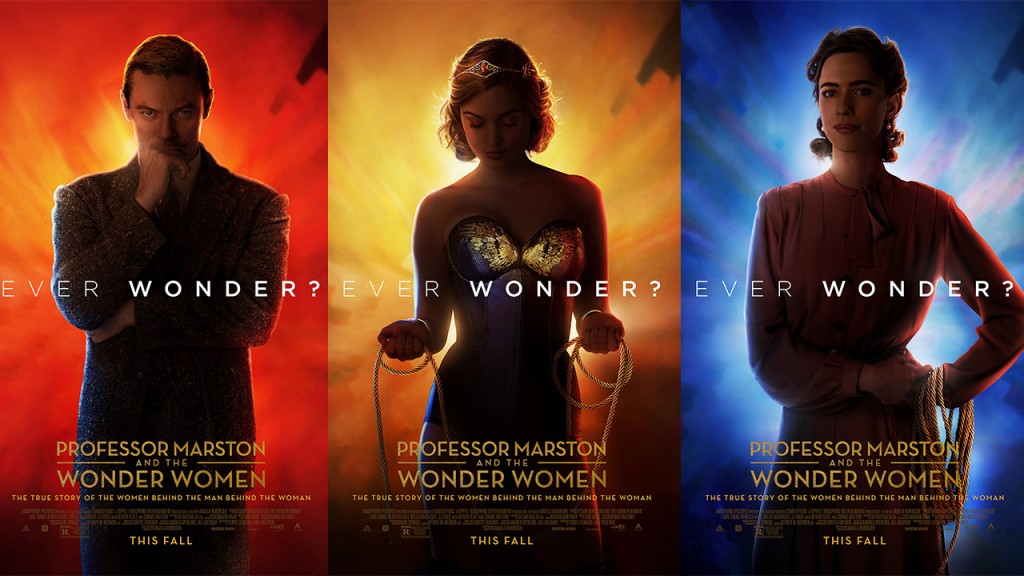Susan Granger’s review of “Professor Marston & the Wonder Women” (Annapurna/Sony)
This is, undoubtedly, the most kinky, provocative comic-book superhero ‘origin’ story – and it’s true!
It begins with a public burning of “Wonder Woman” comics and the stern interrogation of Harvard psychologist Dr. William Moulton Marston (Luke Evans) by Josette Frank (Connie Britton) of the Child Study Association of America, who grills him about his subversive obsession with bondage, which Marston maintains symbolizes his motivational theory.
Flash back to when Marston and his even-more-erudite wife, Elizabeth Holloway Marston (Rebecca Hall), were fascinated by human behavior, specifically the manipulative dynamics of his DISC theory (dominance-inducement-submission-compliance).
“Are you normal? What is normal?” Marston quizzes Radcliffe undergrads, noting, “Men’s minds are far too limited, That’s why we need women!”
While testing their new invention (a.k.a. the lie detector), they become besotted by a student, Olive Byrne (Bella Heathcote), the daughter of suffragette Ethel Byrne and niece of birth control pioneer Margaret Sanger. Open-minded Olive hides the Marstons in her sorority so they can observe ritualized hazing.
When Olive moves in, she enjoys sexual relations with both Marstons, which, not surprisingly, leads their expulsion from Harvard. After moving to Rye, New York, their daring threesome continues, as both women bear William’s children while continuing their penchant for costumed S&M role-playing.
In the 1940s, William starts writing stories, incorporating his psychological theories into the composite character of Wonder Woman/Diana Prince, a liberated role model with radical sexual subtext that intrigues comic book publisher E. C. Gaines (Oliver Platt).
Obsessed with the inherent eroticism, Angela Robinson directs from her own heavy-handed script, eliciting surprisingly memorable performances from the trifecta, particularly multi-faceted Rebecca Hall – and the timing is perfect since “Wonder Woman” is the pop culture hit of 2017.
If you want to know more, read Jill Lapore’s “The Secret History of Wonder Woman” and David Hadju’s “The Ten-Cent Plague: The Great Comic Book Scare and How It Changed America.”
On the Granger Movie Gauge of 1 to 10, “Professor Marston & the Wonder Women” is an intriguing, unconventional 8, propelled by the feminist superpower.

